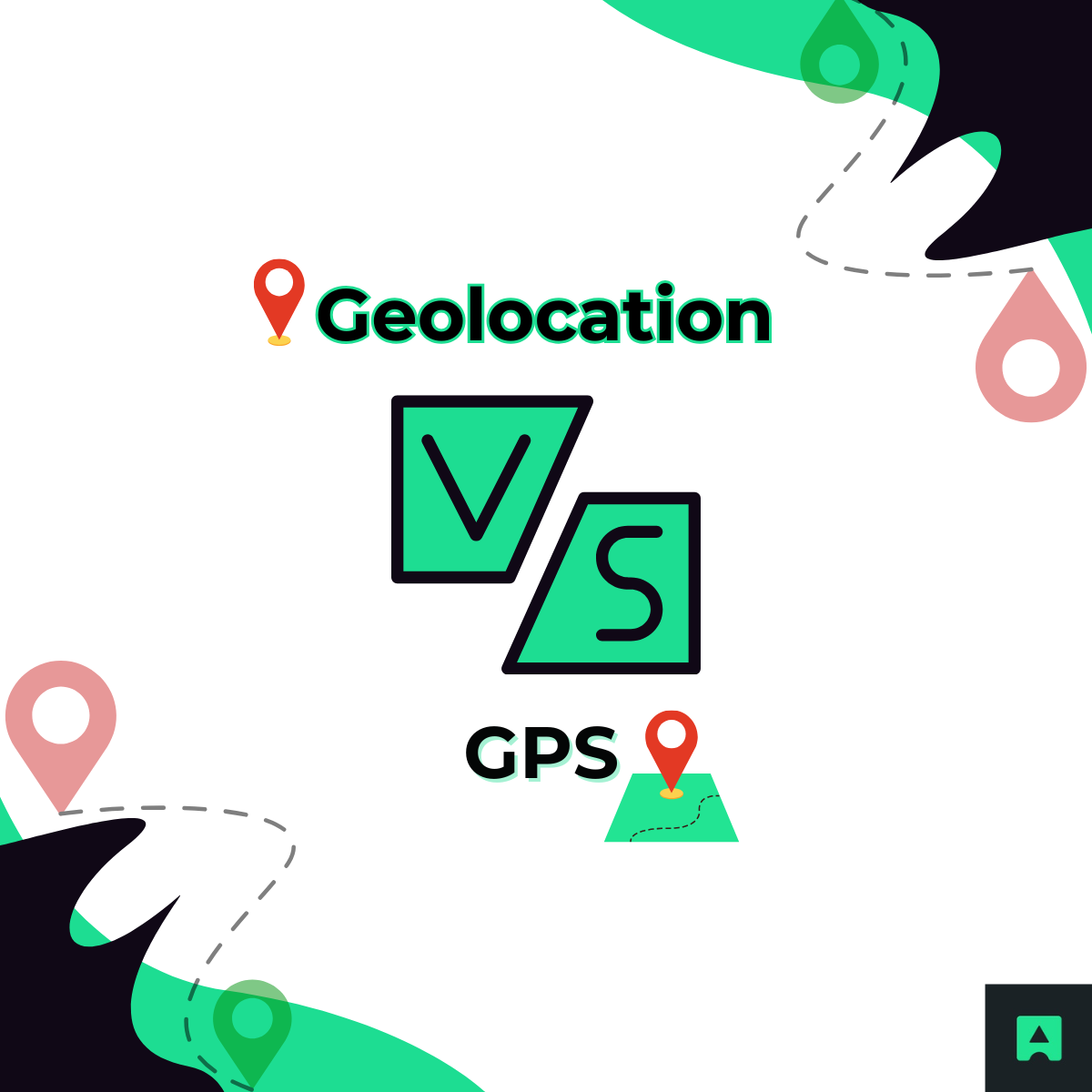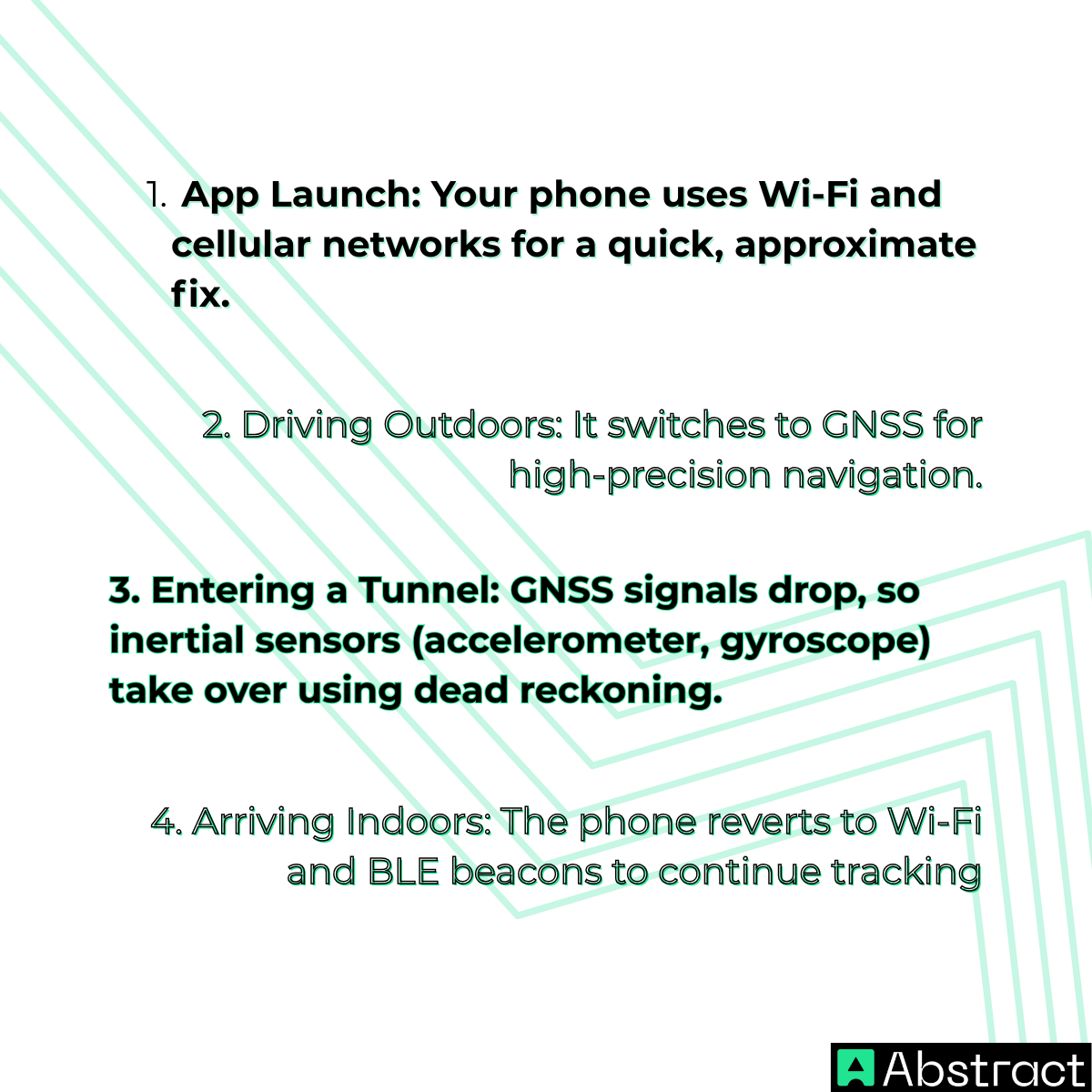What Is Geolocation?
Geolocation refers to determining the physical location of a device or user in the real world. It’s a process that can draw from many different data sources and methods, including:
- Satellite systems (GPS, GLONASS, Galileo, BeiDou)
- Wi-Fi and Bluetooth networks
- IP address lookups
- Cellular towers
- Internal device sensors (accelerometer, gyroscope, magnetometer)
Depending on which data source is used, the accuracy and purpose of the geolocation process can vary dramatically—from city-level precision in IP-based methods to centimeter-level accuracy with Ultra-Wideband (UWB).
If you’re building a web or mobile app that needs location data, tools like AbstractAPI’s IP Geolocation API
offer a simple and privacy-focused way to identify a user’s approximate location via IP address—ideal for content personalization, fraud prevention, and regional access control.
Deep Dive into Satellite Navigation (GNSS)
When most people think of geolocation, they think of GPS. But GPS is just one of several satellite-based navigation systems that make up the Global Navigation Satellite System (GNSS). Let’s unpack how these systems work under the hood.
1. The Three Segments of GPS
GPS consists of three interdependent segments:
- Space Segment: A constellation of roughly 30 satellites orbiting 20,000 km above Earth, each broadcasting a continuous signal with timing and orbit data.
- Control Segment: Ground stations that track satellites, synchronize atomic clocks, and ensure the system’s overall accuracy.
- User Segment: The receivers in your phone, smartwatch, or car that process those satellite signals to calculate position.
Together, these components form one of the world’s most reliable positioning systems, with accuracy typically within 5–10 meters.
2. How Trilateration Works
GPS positioning is based on trilateration, not triangulation.
Your receiver measures how long it takes for signals from at least four satellites to reach it. By multiplying that time delay by the speed of light, it calculates the distance to each satellite. The point where the resulting spheres intersect gives your precise position.
This process also accounts for time errors in your device’s internal clock—one reason why four satellites (not three) are necessary.
Imagine bubbles expanding from each satellite; where they overlap, that’s you 🌐.
3. Beyond GPS: The GNSS Family
GPS is part of a global ecosystem known as GNSS, which includes:
- GLONASS (Russia)
- Galileo (Europe)
- BeiDou (China)
- QZSS (Japan, regional)
Modern smartphones and IoT devices use multi-constellation GNSS, combining data from several systems to improve accuracy, reduce signal loss, and provide faster fixes—even in challenging environments.
Developers interested in integrating GNSS-derived coordinates with IP-based data can combine them using tools like AbstractAPI’s Geolocation APIs to validate or enhance positional accuracy.
4. GPS Accuracy and Limitations
Despite its sophistication, GPS has natural limitations:
- Atmospheric Interference: Signal delay caused by ionospheric and tropospheric distortion.
- Multipath Effects: Reflections from buildings in urban areas (the “urban canyon” problem).
- Satellite Geometry: Poor satellite positioning reduces accuracy (measured by “DOP”—Dilution of Precision).
- Indoor Signal Loss: Signals struggle to penetrate roofs and thick walls.
That’s why your map app often switches to Wi-Fi or cellular methods when you step indoors or enter a tunnel.
The Spectrum of Non-Satellite Geolocation
GPS isn’t always reliable indoors or underground. That’s where other geolocation technologies take over. Each one has unique trade-offs between speed, accuracy, and power consumption.
🖥️ IP Geolocation
IP Geolocation identifies location using a device’s IP address and large geolocation databases. It’s a server-side method—no GPS chips or sensors required.
- Accuracy: City or regional level (typically 10–50 km)
- Ideal For: Websites, APIs, and security tools
- Common Use Cases:
- Content localization (auto-setting language or currency)
- Fraud detection (matching IP vs billing address)
- Geofencing or compliance (e.g., GDPR region detection)
You can try it instantly with the AbstractAPI IP Geolocation API, which returns data like country, city, postal code, and even timezone from a simple IP request.
📡 Wi-Fi Positioning (WPS)
Wi-Fi Positioning works by analyzing nearby Wi-Fi access points and matching them to known coordinates in public databases.
- Accuracy: 10–50 meters
- Best For: Dense urban areas and indoor environments
- Example: Your phone can locate you in a café without GPS by recognizing the Wi-Fi network around you.
This is why Android and iOS recommend keeping Wi-Fi turned on for “improved location accuracy.”
📱 Cellular Positioning
Cellular positioning estimates a device’s location using the signal strength and timing from nearby cell towers.
- Accuracy: 100–1000 meters (depends on tower density)
- Best For: Low-power, fallback positioning
- Use Cases:
- E911 emergency services
- IoT tracking devices
- Fleet management in areas with weak GPS
📍 Micro-Location (BLE Beacons & UWB)
For indoor environments where precision matters, Bluetooth Low Energy (BLE) and Ultra-Wideband (UWB) take center stage.
- Accuracy: Up to 10 centimeters
- Best For: Enclosed environments
- Use Cases:
- In-store navigation and customer analytics
- Asset tracking in warehouses or hospitals
- Augmented reality (AR) positioning systems
This technology underpins smart retail and logistics—creating hyper-local, context-aware experiences.
⚖️ Choosing the Right Tool for the Job
Here’s how all these technologies compare:





